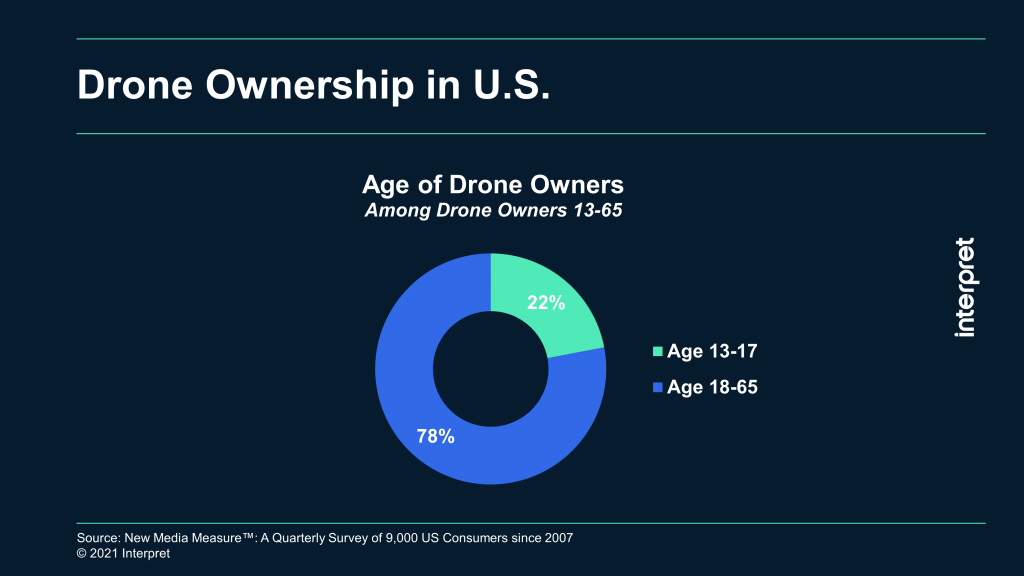Drone technology has come a long way in recent years. For businesses, broadcasters, and governments around the world, drones have become an essential part of daily operations. Aside from their utility, however, drones can also be plain fun for a lot of consumers who have embraced new hobbies during the pandemic – drones are a musthave for the RC hobbyists who grew up on radio control cars and model aircraft in the ‘80s and ‘90s, and for many younger hobbyists (and their kids) who are increasingly gravitating to the technology.
The popularity of these devices in the consumer world is clearly on the rise. Drones for children, beginners, and experts have seen an uptick in sales over the last year, according to Interpret’s New Media Measure®. Year-over-year, from Q3 2019 to Q3 2020, we’ve seen drone ownership increase from 10% to 11%, which may not seem like a big jump, but that incremental rise represents about 3 million more drones sold by manufacturers like DJI. Drone purchases have been driven by adults, but the devices are popular as toys for kids and teens as well, with Interpret data showing that 22% of drone owners (or recipients) are teens aged 13-17.
As more consumers enter the drone market for the first time, it’s important for people to be aware of the rules and regulations being imposed on these flying devices. In the US, if you purchase a drone that weights 250 grams or more, you must register it with the Federal Aviation Administration (FAA).
Additionally, as reported by The Verge, the FAA has just updated its drone regulations with new rules that could further shake up the drone world. In 2022, the FAA will require every drone owner (for drones over 0.55 lbs) to broadcast their location – specifically, the individual’s geographical location, not just the drone’s.
This “Remote ID” standard involves broadcasting an identification number that law enforcement can cross-reference with a drone owner’s registration number, as well as their drone’s speed and altitude. We’ve seen regulations on drones expanding in other markets as well, including the UK, Japan, and more.
As the technology continues to improve and prices come down, the hobbyist drone market is primed for growth – invariably, the regulation thicket will grow denser as well.




